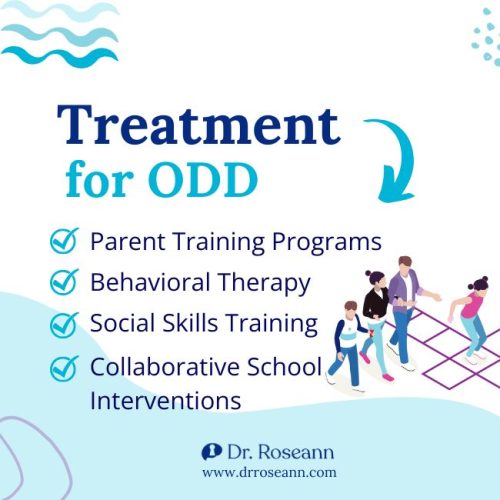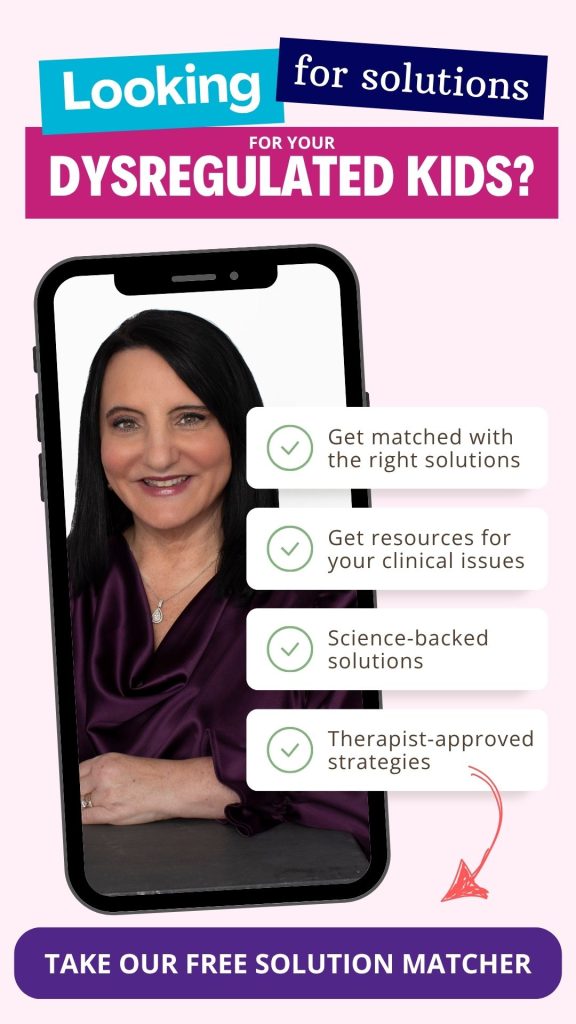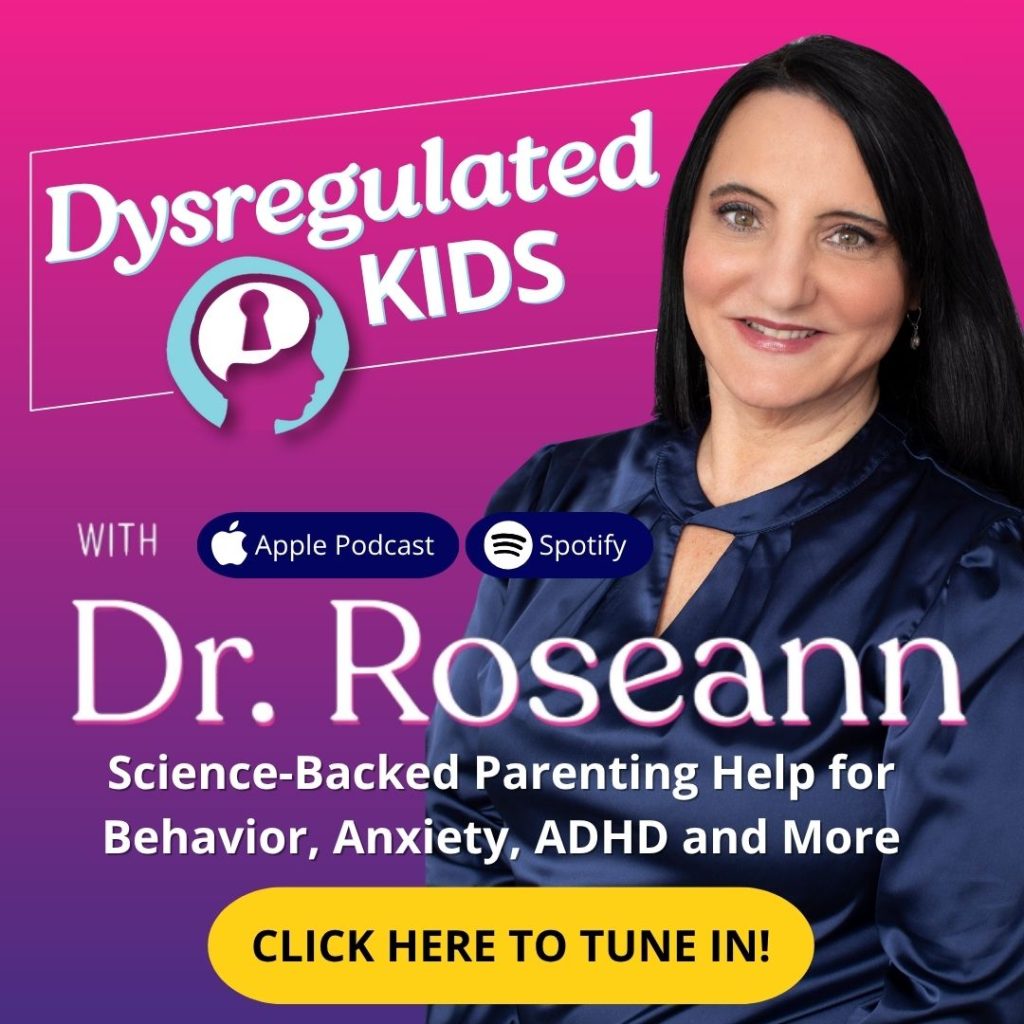
Estimated reading time: 3 minutes
Parents often ask me at my center, “Is my child’s defiance just oppositional behavior, or is something bigger at play?”
With cases of PANS and PANDAS rising in 2025, it’s crucial to rule out these medical conditions when sudden oppositional or defiant behaviors emerge, especially if there’s no obvious stressor or trauma behind the change.
Lyme disease, Epstein-Barr, mold exposure, long-haul COVID, and other infections or toxins can trigger inflammation that affects the brain and nervous system that makes your child act differently than ‘normal’. This inflammation can mimic or contribute to conditions like Oppositional Defiant Disorder (ODD), anxiety, OCD, Autism, and more.
https://youtu.be/latlQgXX8Vo
What is Oppositional Defiant Disorder (ODD)?
Oppositional Defiant Disorder (ODD) isn’t just a phase, it’s a real behavioral condition where a child regularly resists, argues, and pushes back, especially with authority figures like parents and teachers (John Hopkins Medicine).
If the defiance is constant, tempers run high, and everyday life feels like a battle, it’s more than just strong-willed behavior. It’s a sign it’s time to look deeper.
Key Symptoms:
- Frequent temper tantrums
- Excessive arguing with adults
- Deliberate attempts to annoy or upset people
- Blaming others for one's own mistakes or misbehavior
- Being easily annoyed or angered
- Spiteful or vindictive behavior
What are PANS and PANDAS?
PANS and PANDAS are conditions that involve a sudden onset of obsessive-compulsive behaviors (OCD) and other neuropsychiatric symptoms.
- PANS (Pediatric Acute-onset Neuropsychiatric Syndrome): A condition where a child suddenly develops severe psychiatric symptoms characterized by the abrupt onset of OCD symptoms or severely restricted food intake, along with at least two other cognitive, behavioral, or neurological symptoms.
- PANDAS (Pediatric Autoimmune Neuropsychiatric Disorders Associated with Streptococcal Infections): A subset of PANS, where symptoms are specifically triggered by a streptococcal infection.
Common Symptoms:
- Sudden onset of OCD behaviors
- Severe separation anxiety
- Tics or abnormal movements
- Mood swings and irritability
- Decline in academic performance
- Sleep disturbances
- Bedwetting or frequent urination
How do ODD, PANS, and PANDAS differ?
While there is some symptom overlap, key differences help distinguish these conditions:
CategoryODDPANSPANDAS Onset Gradual over time Sudden, abrupt onset of symptoms Sudden, abrupt onset of symptoms following a strep infection Primary Behavioral Symptoms Persistent defiance, arguing, refusal to comply with rules or authority Mood swings, emotional instability, rage, anxiety, obsessive-compulsive behaviors (OCD symptoms) Mood swings, emotional instability, rage, anxiety, OCD symptoms, disabling tics, and unusual movements Emotional Symptoms Anger, irritability, frequent temper tantrums Anxiety, depression, irritability, emotional lability, eating restrictions Anxiety (separation anxiety), depression, irritability, emotional lability, eating difficulties Neurological Symptoms None Tics, motor abnormalities, and sensory abnormalities Tics, motor, and sensory abnormalities Cognitive Symptoms May include attention difficulties or learning struggles Decline in school performance, brain fog, difficulty focusing Decline in school performance, brain fog, difficulty focusing Physical Symptoms None Sleep disturbances, increase in urinary frequency, somatic complaints (e.g., stomach aches, headaches) Frequent urination, sleep disturbances, somatic complaints (e.g., stomach aches, headaches) Triggers Environmental factors, inconsistent discipline Infections (e.g., Lyme, viruses), toxins, or stress Group A strep infection (e.g., strep throat, scarlet fever) Progression Stable over time if untreated Symptoms wax and wane, often worsening during flares Symptoms wax and wane, often worsening during flares triggered by recurrent strep Root Cause Behavioral and environmental Immune system dysregulation, brain inflammation Immune system dysregulation caused by a strep-triggered autoimmune response
This chart compares symptoms of ODD, PANS, and PANDAS, so you can stop guessing and start understanding what’s really driving your child’s behavior.
Oppositional behavior is rarely just defiance. In my 30 years of experience, ODD has always had a deeper root often linked to infections, inflammation, or nervous system dysregulation from conditions like PANS, PANDAS, or AE. Sudden or extreme behavior shifts should never be ignored.
Understanding the Brain-Behavior Connections
Research shows that tick-borne illnesses like Lyme disease may trigger anxiety, depression, attention issues, sensory problems, memory loss, and neuropsychiatric symptoms.
A 2021 study by Fallon, Madsen, Erlangsen, and Benros found that individuals with Lyme had significantly higher rates of mental health issues, including suicide attempts.
So when a child suddenly becomes anxious, defiant, or emotionally reactive, it may not be “bad behavior.” It could be a physiological response to brain inflammation or toxins disrupting the nervous system.
The Dysregulated Brain: Why Behavior Isn’t Always What It Seems
Chronic stress is a major threat to your child’s brain and body.
When the autonomic nervous system (ANS) is stuck in fight-or-flight mode, the body can’t rest, heal, or regulate emotions.
This dysregulation can lead to behaviors like:
- Defiance or aggression
- Panic attacks or OCD symptoms
- Emotional outbursts
Treatment approaches for ODD, PANS, and PANDAS
ODD:
- Parent Training Programs: To help parents develop positive discipline strategies and improve family dynamics.
- Behavioral Therapy: To teach children coping skills and how to manage their emotions.
- Social Skills Training: To help children build healthy relationships.
- Collaborative School Interventions: Ensuring children receive appropriate accommodations and support at school.

PANDAS/PANS
- Target the Infection or Toxin: Work with a PANS/PANDAS-literate doctor to address underlying infections (e.g., strep, Lyme) or toxins (e.g., mold).
Strep bacteria can trigger PANDAS by causing an immune response that leads to neuropsychiatric symptoms.
Addressing these bacteria with antibiotic treatment is crucial to prevent associated autoimmune reactions. - Calm the Brain: Therapies like neurofeedback, PEMF, and biofeedback help regulate the nervous system, reduce inflammation, and stabilize behavior.
- Behavioral and Psychological Support: Incorporate strategies like cognitive-behavioral therapy (CBT) to teach coping skills and build emotional resilience.
That’s why calming the brain and regulating the nervous system is essential for treating conditions like PANS, PANDAS, and Lyme-induced neuroinflammation.
How our BrainBehaviorReset™ Helps Children Heal
Our BrainBehaviorReset™ Program, a science-backed, holistic approach addresses the root causes of brain and behavior dysregulation. Our individualized care program include:
- Neurofeedback therapy to calm the brain
- Lifestyle and nutritional changes to support healing
- Parent education to foster consistent home support
This comprehensive model helps families move from frustration and chaos to clarity, calm, and connection.
If your child has been labeled with ODD but their symptoms seem sudden, extreme, or linked to an illness, don’t stop there. Oppositional behaviors are often a symptom of deeper issues like PANS, PANDAS, or AE. By addressing the root cause, calming the brain, and creating a comprehensive treatment plan, you can help your child heal—and get your family back to a place of calm and connection.

Parent Action Steps
If your child is struggling with sudden behavioral changes, here’s what you can do:
Rule Out PANS and PANDAS: Advocate for testing with a specialist familiar with these conditions. Identifying and treating streptococcal infections is crucial, as these infections can lead to sudden and severe neuropsychiatric symptoms in children with PANDAS Calm the Brain: Explore neurofeedback, PEMF, or other therapies to regulate your child’s nervous system Address the Root Cause: Work with a PANS-literate provider to identify and treat underlying infections or toxins Educate Yourself: Knowledge is power. Understanding your child’s condition is the first step toward meaningful change Use the Solutions Matcher to receive personalized treatment options for your child
FAQs
Can I give SSRIs to my child with ODD?
SSRIs (Selective Serotonin Reuptake Inhibitors) may help with co-occurring anxiety and depression, but they aren’t the 1st step to treating ODD.
ODD often stems from nervous system dysregulation, trauma, or underlying mental health conditions like PANS/PANDAS or ADHD. I recommend starting with calming the brain first, behavioral therapy, and coaching.
How is PANDAS diagnosed and what are the symptoms?
PANDAS symptoms appear suddenly—think OCD, tics, anxiety, or emotional outbursts. Diagnosis involves a physical exam, strep testing, and ruling out other medical causes. A PANS/PANDAS-literate provider will assess how severe the symptoms are and the history of infection.
Is PANS/PANDAS an autoimmune disorder?
PANS and PANDAS are not traditional autoimmune disorders, but both involve an immune response that mistakenly targets the brain after an infection.
What’s the connection between PANDAS and strep infections?
PANDAS is triggered by Group A strep. The body’s immune response misfires, attacking brain tissue and causing sudden-onset symptoms like OCD, tics, anxiety, or rage.
Can a strep infection cause neuropsychiatric symptoms in children?
Yes. In vulnerable children, strep can trigger inflammation in the brain, leading to behaviors like OCD, aggression, separation anxiety, or motor tics—hallmarks of PANDAS.
Can Group A strep trigger Tourette-like symptoms?
Yes. GAS infections (Group A Strep) can trigger PANDAS, where tics, OCD, or Tourette-like behaviors appear suddenly.
Citations:
John Hopkins Medicine. (undated). Oppositional Defiant Disorder in Children. Retrieved from https://www.hopkinsmedicine.org/health/conditions-and-diseases/oppositional-defiant-disorder
Fallon, B. A., Madsen, T., Erlangsen, A., & Benros, M. E. (2021). Lyme borreliosis and associations with mental disorders and suicidal behavior: A nationwide Danish cohort study. The American Journal of Psychiatry, 178(10), 921–929. https://doi.org/10.1176/appi.ajp.2021.20091347
Dr. Roseann is a mental health expert in Neurodivergence who is frequently in the media:
- Business Insider How to practice ‘autonomy-supported parenting' to boost your family's wellbeing
- Healthline Get Stuff Done: A Realistic Guide to Working From Home with Kids
- Love Shack Live How To Navigate The Parenting Journey As A Couple
Always remember... “Calm Brain, Happy Family™”
Disclaimer: This article is not intended to give health advice and it is recommended to consult with a physician before beginning any new wellness regime. *The effectiveness of diagnosis and treatment vary by patient and condition. Dr. Roseann Capanna-Hodge, LLC does not guarantee certain results.
©Roseann Capanna-Hodge
Are you looking for SOLUTIONS for your struggling child or teen?
Dr. Roseann and her team are all about science-backed solutions, so you are in the right place!
Grab your complimentary copy of


%20.png)















